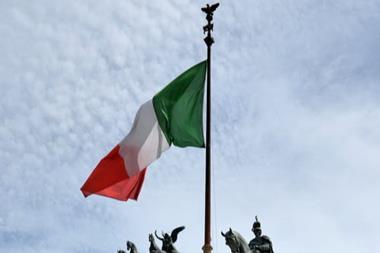Aargauische Pensionskasse (APK), the Swiss pension fund for the employees of the Aargau canton, has switched the benchmark for its emerging market equities portfolio to the MSCI Low Carbon Target Index, similar to foreign equities, it said in its latest financial statement.
The management board has therefore expanded the scheme’s climate strategy to also cover equity investments in emerging markets, addressing physical risks, and risks resulting from climate policies.
The asset managers running the scheme’s Swiss bonds portfolio continue to pursue an active investment strategy taking climate risks into account when selecting securities.
In the case of corporate bonds, APK will change its asset manager this year to switch to an active investment strategy explicitly addressing climate risks.
It added that it is not applying a climate strategy to its Swiss equity portfolio, but the managers running a small-cap foreign equities portfolio follow an ESG approach.
The scheme has used its reserves to cushion to a large extent its negative performance of -8% recorded last year, slightly below the investment strategy benchmark of -7.96 %, it said in the statement.
Central banks’ decision to hike interest rates to fight inflation has led to corrections in the markets, which have had an impact on APK’s portfolio, is stated.
Returns and allocations
Swiss bonds returned -12.4% for the scheme in 2022, with foreign bonds returning -16.7%, foreign corporate bonds -15.5%, emerging market debt hard currency -15.2%, and emerging market debt local currency -7.9%.
Equities also delivered negative results, with Swiss equities returning -17.2%, foreign equities -17.3%, emerging market equities -20.1%, and small-cap foreign equites -7.5%, according to the financial statement.
At the end of last year, the pension fund invested 9% of its assets in Swiss bonds, 2.8% in government bonds, 5.8% in foreign corporate bonds, 3.1% in emerging market debt hard currency, 1.7% emerging market debt local currency, 9.7% in Swiss equities, 13.5% in foreign equities, 4.7% in emerging market equities, and 1.5% in foreign small-cap equities.
It also invested 5.3% of its assets in mortgages, 1.5% in loans to affiliated employers, 5.3´2% in loans to others, 0.2% in direct real estate investments in Switzerland, 14% in Swiss real estate foundations, 3.3% in indirect real estate investments in Switzerlands, 5.7% indirect real estate investments abroad, 1.9% in commodities, 5.9% in infrastructure projects, 2% in private debt, 0.5% in insurance linked securities and 1.2% in other forms of alternative investments, according to the statement.
APK ended 2022 underfunded, with a funding level of 98.1%, down 10.2% year-on-year. The funding ratio has fallen more sharply compared to its investment performance.
The scheme expects, however, higher returns due to increasing interest rates, meaning that it will cover underfunding through investments and without taking further measures.
APK’s assets under management at the end of the year amounted to CHF12bn (€12.2bn), a decrease of around CHF1.1bn compared to the previous year.
Real assets
Last year, APK merged its directly invested real estate portfolio worth CHF800m with those of other pension funds in the real estate investment foundation Turidomus, run by Pensimo Management.
The scheme will have a seat on the board of trustees of the Turidomus investment foundation, and will also be a shareholder of Pensimo having direct say on the strategic development of the real estate portfolio.
Asset management costs increased to 50 basis points in the year under review, in particular due to costs of infrastructure projects.
Alongside real estate investments, infrastructure was one of the few asset classes delivering a positive performance in a difficult investment year, the scheme said.
Infrastrutture project (hedged) returned 7.7% in 2022, direct real estate investments in Switzerland 8.7%, real estate investment in foundations 4.7%, while indirect real estate investments in Switzerland returned -12.4%, private debt -2.7%, and insurance linked securities (hedged) -5.2%.
The latest digital edition of IPE’s magazine is now available

















